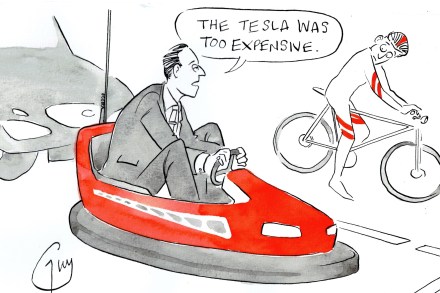My electric car will be the death of me
Ask my friends and family and they’ll tell you: I am an electric car bore. I’m not a gushing enthusiast. I’m more the negative kind of EV dullard. I can’t stop telling people about the horror of driving these wretched things. I’m really not like this about other subjects, or indeed about life. I’m generally pretty positive and optimistic. But I have an EV. I rely on it to get me from A to B, at all hours, in all weather conditions, and perhaps, heaven forbid, even at short notice. You might not be surprised to hear that my electric car is sorely deficient in doing all these things. Let’s




















